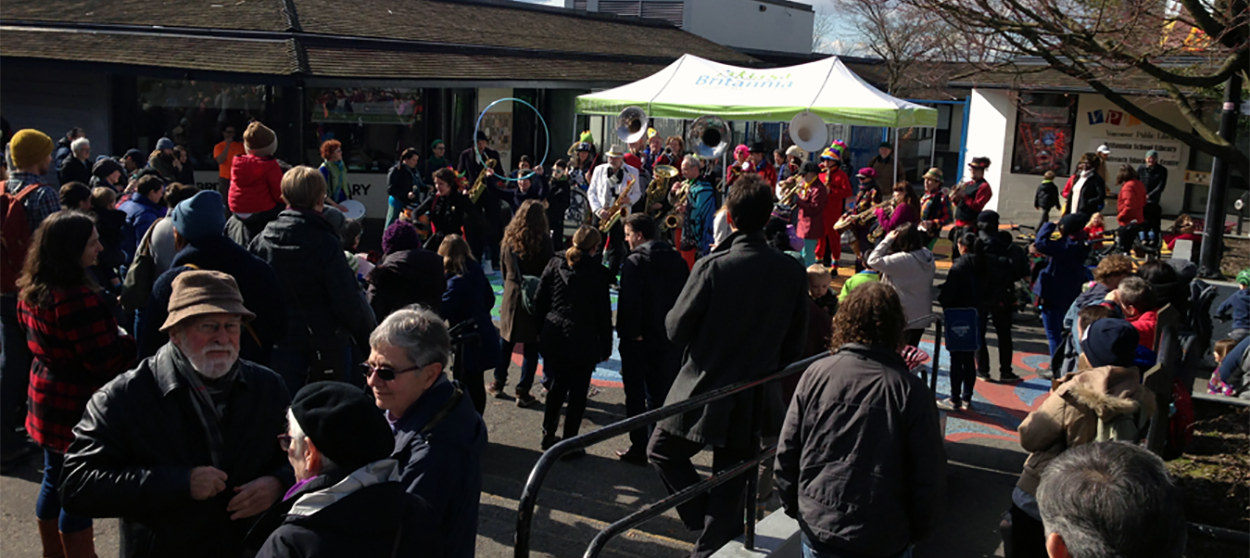Britannia Renewal

Britannia Renewal
Client: City of Vancouver
Dates: 2016 – 2018
EcoPlan worked with a larger project team led by Urban Arts Architecture to develop a Master Plan for Britannia Community Services Centre and the large 18-acre site in East Vancouver’s Commercial Drive neighbourhood. EcoPlan led public engagement for the community-guided project, which resulted in a plan for the evolution of the site and its facilities for the next 30 years. With multiple site partners – City of Vancouver, Vancouver School Board, Vancouver Public Library, Vancouver Park Board, Britannia Community Services Centre – and a range of facilities and programs on site that draw up to 4,000 people on school days, the engagement program was multi-faceted and broad. Britannia is home to an elementary school, high school and alternate school, swimming pool and fitness centre, ice rink, teen and youth centre, public library, three gyms, a family centre, and an Elders centre, among other outdoor park facilities.
With a significant Indigenous population at the schools and in the wider neighbourhood, the project included a major Indigenous engagement component, which included youth outreach, Elders workshops, and an Indigenous Visioning Session to discuss the spaces, places, and Indigenous values to frame and inform the larger process. The Indigenous engagement component was supported with additional resources from the City and recognized with a 2018 IAP2 Award for Indigenous Engagement.
Other engagement included a kick-off ideas fair with 800 participants, open houses, themed workshops and focus groups, a social media program, and a speakers’ series that brought in a range of people to speak to the project planning and design pillars. It also included the establishment of Britannia Renewal LAB (B-LAB), a community living room and project information site at Britannia Centre that housed different activities through the duration of the project. Finally, the project also included a special Housing Forum which engaged residents to discuss the project’s significant non-market social housing component. In all, there were over 3,500 interactions with community members in the engagement process.
